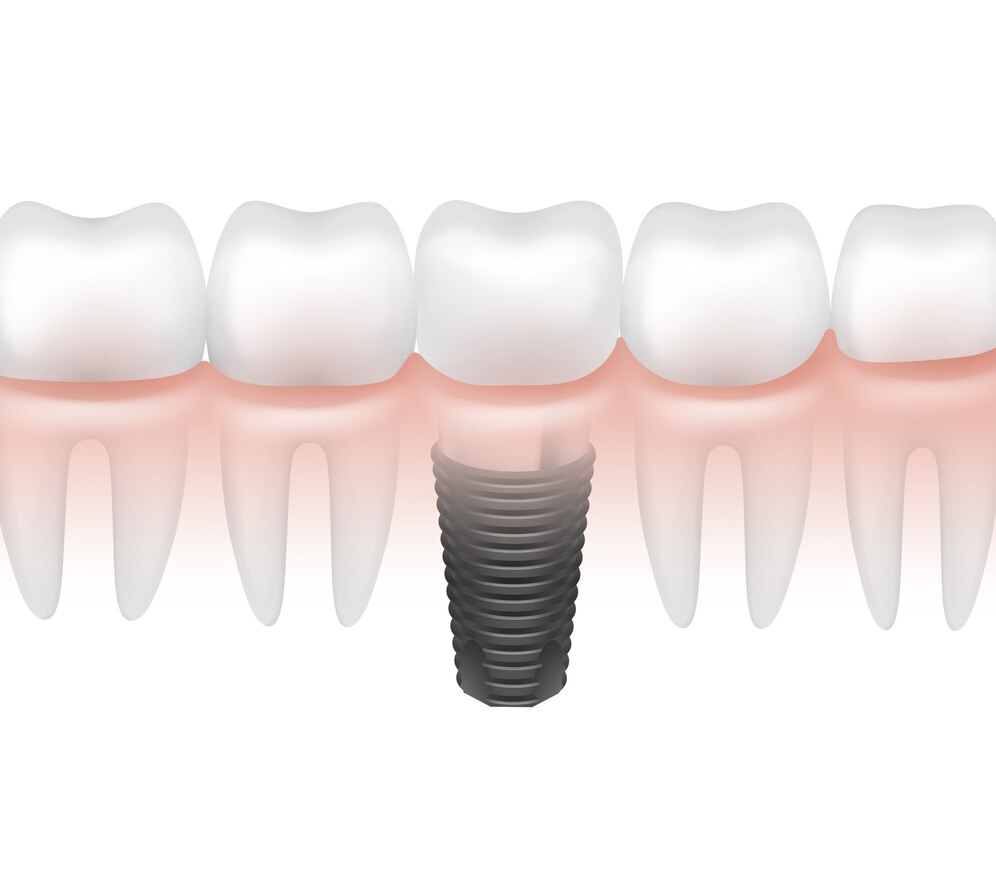Are your dental implants causing problems? Here’s what you should know
Dental implants have revolutionized the way in which people restore their smiles by providing a treatment option that is both long-lasting and visually acceptable for those who are missing teeth. Complications are possible, however, just like they are with any other dental or medical surgery. Although implants have a remarkable success rate, there is a possibility that some patients will develop discomfort, infections, or other issues. If you experience prolonged discomfort, swelling, or difficulty chewing after your implant procedure, you must thoroughly understand what might be happening and how to address the issue.

Dr. Amna Choudhary and the rest of her staff at Laurel Smile Design have a multitude of years of experience in the field of implant dentistry. It is common for patients to believe that discomfort is merely a natural part of the healing process; nonetheless, it is imperative that neither persistent pain nor consequences be disregarded. Implants should have a sensation that is almost equal to that of a natural tooth; they should be stable, functional, and painless.
Therefore, if you are experiencing discomfort with your implant, you might be dealing with a problem that requires treatment. There are a number of problems that could be hurting your oral health, including the failure of implants and inflammation of the gums.
In this article, we will discuss the most common issues that are associated with implants, their possible causes, and the most effective measures to guarantee that your dental restoration continues to be successful. In addition, if you are in Connecticut and have been considering getting Invisalign, we will explore how orthodontic treatments and dental implants in Stamford, CT, can complement one another to work toward improving your overall dental health.
The Most Frequent Issues Concerning Dental Implants
1. Pain that does not go away after the healing
It is typical to experience some discomfort immediately after an implant procedure; however, persistent pain that persists for several weeks or months is a warning sign. This problem might be caused by a number of people:
The implant must merge with the jawbone in the correct manner to prevent improper osseointegration. It is possible for the implant to become unstable if this process, which is referred to as osseointegration, does not take place correctly.
Peri-implantitis, often known as infection, is a condition that occurs when bacteria build up around an implant, causing an infection that damages the gum tissue and bone in the surrounding area.
There is a possibility that the implant could be put too close to a nerve, which could result in tingling, discomfort, or numbness. This is an extremely unusual occurrence.
2. Inflammation of the gum region or receding gums
Maintaining healthy gums is essential for the stability of implants. If you observe irritation, redness, or a receding gum line surrounding the implant, it may be an indication of the following:
- Inadequate oral hygiene resulted in the accumulation of germs.
- Overly intense pressure on the implant as a result of clenching or grinding the teeth
- There was an allergic reaction to the substance of the implant.
3. Implants that are slack or wobbly
The implant should never feel loose after it has been correctly put. Some of the possible explanations for this are as follows:
- Bone Loss: If the jawbone is not dense enough, the implant may not remain in place firmly. Bone loss includes bone loss.
- Failed Integration: The bone and implant need to attach properly in order for there to be movement. If this does not happen, the implant may move.
It is possible that the crown itself or the abutment, which is the portion that connects the implant and crown, has become loose over the course of time due to mechanical failure.
4. Issues with the Sinuses (Relating to Upper Implants)
It is possible that you will feel sinus pain, pressure, or even infections if an implant is placed in the upper jaw and extends too far into the sinus canal. When such discomfort occurs, it is typically because the bone height in the upper jaw was insufficient prior to placement.
5. Complications with Chewing
The normal function of your mouth should be restored via an implant, allowing you to eat without discomfort. In the event that chewing causes discomfort, it may indicate that:
6. It appears that the crown is not properly aligned with your bite
Your upper and lower teeth will meet differently depending on where the implants are placed.
An underlying problem with the stability of the implant has been identified.
What’s the Cause of Implant-Related Disorders?
1. Inadequate Positioning or Planning
The placement of implants must be accurate for them to be successful. When the implant is not properly implanted, it has the potential to exert an excessive amount of pressure on the bone or nerves that are nearby. The use of appropriate pre-surgical imaging, such as 3D scans, can assist in preventing placement problems.
2. Bone density that is insufficient
Robust support from the jawbone is necessary for the stability of the implant. It is possible that the implant will not integrate adequately if the bone is either too thin or too fragile. Occasionally, bone grafting is necessary prior to the insertion of the implant.

A Guide to Preventing Implant-Related Issues
- Remember to practice excellent oral hygiene
Like you would with your natural teeth, you should brush and floss around your implants. To clean regions that are difficult to access, you might want to think about utilizing interdental brushes or a water flosser.
- Ensure that you have regular dental checkups
Regular visits to Laurel Smile Design are beneficial in identifying any issues at an earlier stage. Prior to any worries becoming more serious, Dr. Amna Choudhary will evaluate the status of your implant and address any concerns that may arise.
- Smoking and drinking to excess should be avoided
The gums receive less blood flow when a person smokes, which slows the healing process and increases the chance of infection. The bone density can also be weakened over time by alcohol, which might influence the durability of implants.
- When you grind your teeth, you should use a night guard
Bruxism exposes implants to stress, which can ultimately result in their failure. An individualized night guard offers protection by lowering the amount of pressure that is placed on your teeth.
- Watch Out for Foods That Are Hard
Although dental implants are long-lasting, the crown or abutment might be damaged if they are subjected to severe pressure from hard items, such as ice or hard candy.
Treatment Options Available for Implants That Cause Problems
1. Cleaning and Antibiotics Provided by Professionals
If an infection is detected at an early stage, a thorough cleaning in conjunction with antibiotics may be able to resolve the problem before it becomes more severe.
2. Surgery to Graft Bone or Gumnight guard
For the purpose of rebuilding the area and providing stability, a grafting treatment can be required in the event that bone loss occurs.
3. Surgical removal and replacement of implants
Removing the implant may be the most effective course of action in extreme circumstances where it has failed. After the region has had time to heal, a replacement implant can be inserted.
4. Adjustment of the Bite
In the event that the problem is associated with a misaligned bite, correcting the crown or investigating orthodontic treatments such as Invisalign in Stamford, Connecticut, may be able to assist in developing better dental function overall.
5. When to Seek Assistance
It is imperative that you take immediate action if you are experiencing persistent discomfort, edema, or movement with your implant. Prevention of more serious consequences can be achieved by early intervention. Dr. Amna Choudhary, who practices at Laurel Smile Design, will carefully assess your case and recommend the most appropriate course of action.
Concluding Remarks: If You Want a Healthy Smile, Take Action
The purpose of dental implants is to improve your life, not to make you uncomfortable. In the event that you are encountering problems, fixing them as soon as possible can guarantee better long-term results. There are methods available to restore the health and function of your smile, regardless of whether it is suffering from an infection, a misaligned bite, or the failure of an implant.
Schedule an appointment with Laurel Smile Design as soon as possible if you are in need of professional care for your implants or if you are interested in exploring options such as Invisalign in the Stamford, CT area. Allow Dr. Amna Choudhary to assist you in preserving a smile that is both self-assured and pleasant.
